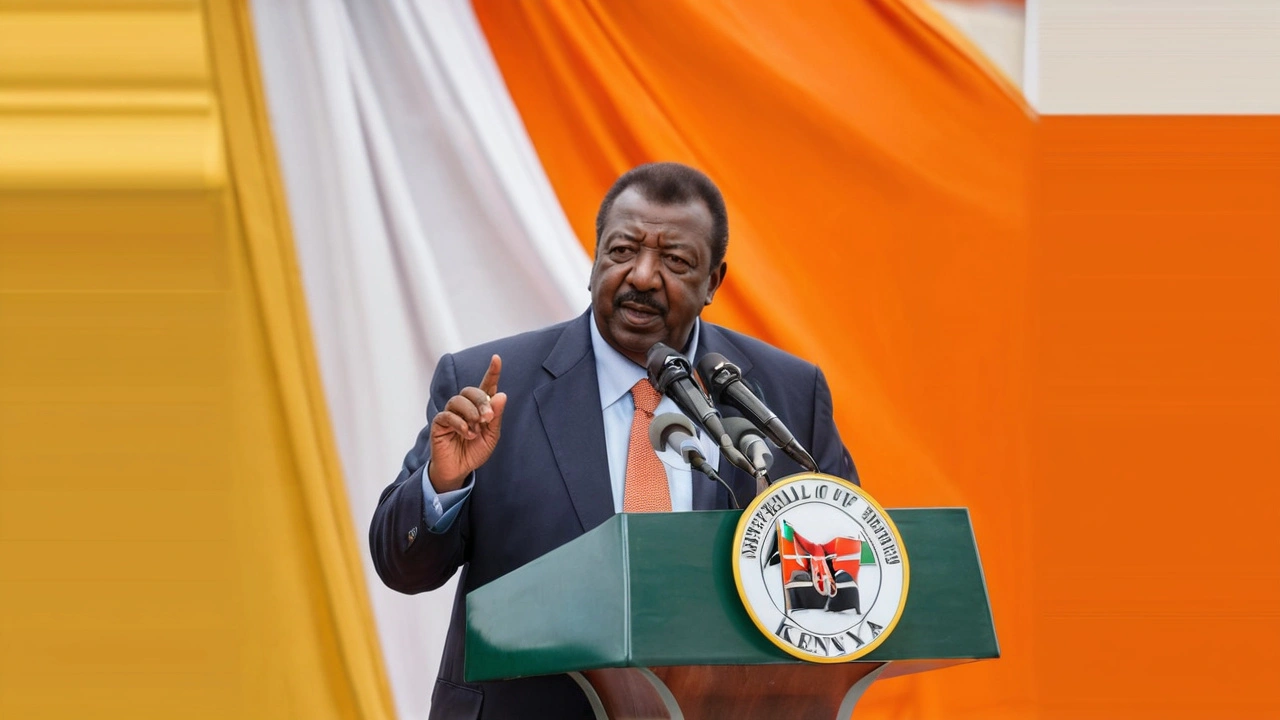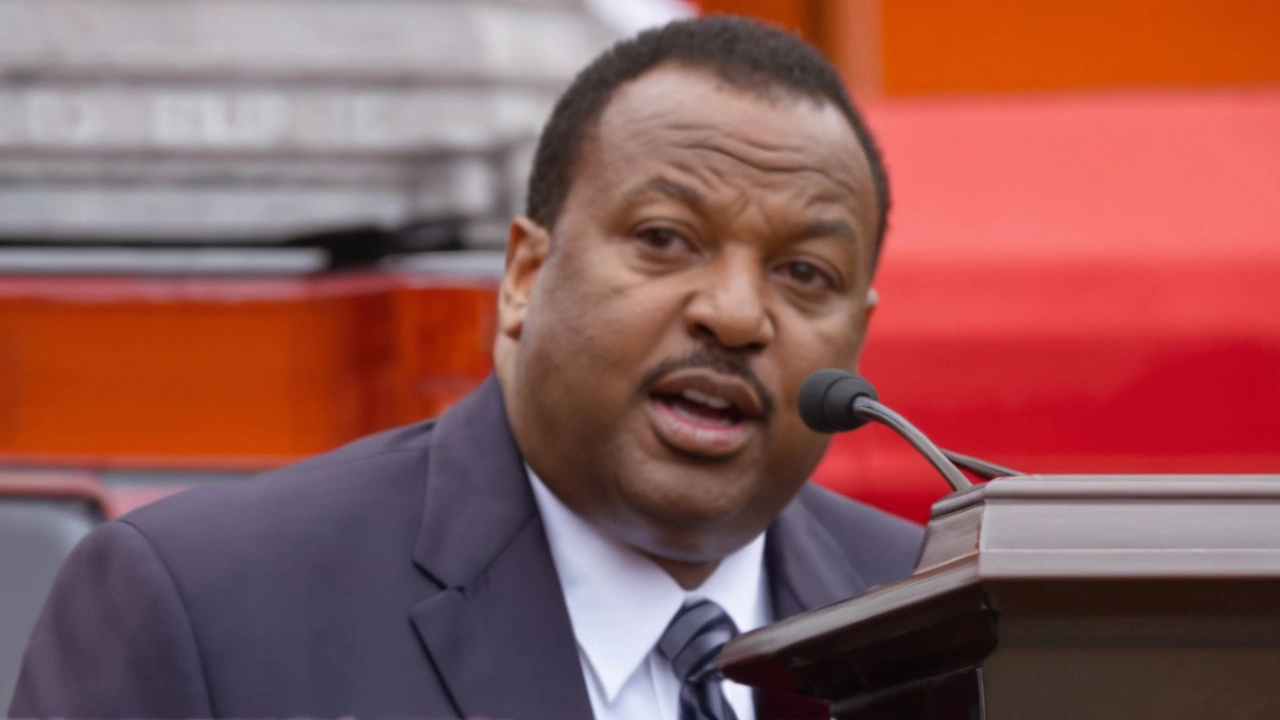Musalia Mudavadi Clears the Air on JKIA's Future
Prime Cabinet Secretary Musalia Mudavadi recently addressed speculations regarding the future of Kenya's main aviation hub, the Jomo Kenyatta International Airport (JKIA). In a much-anticipated session before the Budget and Appropriation Committee to defend the supplementary budget for the 2024/2025 financial year, Mudavadi emphasized that JKIA would not be sold under any circumstances. This came in response to circulating reports that the government was planning to lease the airport to Adani Airport Holdings Limited, an Indian firm, for an extensive period of 30 years. Mudavadi's clarification highlights the Kenyan government's priority to maintain strategic assets under public control while focusing on modernization through innovative funding avenues.
Mudavadi described JKIA as not just an infrastructural asset but a cornerstone of national pride and economic stability. Contemplations about selling or leasing it, he noted, required a comprehensive public process and the endorsement of Parliament – a measure to ensure that such critical decisions have the broadest possible consensus. By reiterating this stance, Mudavadi not only quashed the sale rumors but also assured the public and stakeholders of the government's transparency and consultative approach in managing national assets.
Investing in Modernization: Public-Private Partnerships
Addressing how the government plans to elevate the status and functionality of JKIA, Mudavadi elaborated on the commitment to leveraging public-private partnerships (PPPs). By engaging investors, the government intends to pump significant capital into upgrading the airport’s facilities, thus improving the overall passenger experience and expanding its capacity to handle more traffic. This move, he assured, will catalyze economic activities, increase tourism, and place Kenya as a significant player in the global aviation sector.
The proposed expansion includes the construction of a modern terminal, which is expected to meet international standards and handle the growing passenger numbers more efficiently. Mudavadi’s narrative aligns with global trends where airports are increasingly becoming dynamic hubs of commerce and travel, necessitating regular infrastructural and technological updates. He pointed out that these updates would be executed with utmost transparency and integrity, a task delegated to the Kenya Airports Authority (KAA).
Ensuring Transparency and Public Confidence
To mitigate any concerns about the transparency of these PPP initiatives, Mudavadi assured that the Kenya Airports Authority will play a pivotal role in overseeing the investment and expansion processes. Steps will be taken to ensure that every stage, from planning to implementation, adheres to rigorous standards of accountability. This approach is designed to preserve public confidence and secure investor trust, thereby creating a win-win situation for all parties involved. Mudavadi also called for active participation and scrutiny by civil society and all relevant stakeholders to help maintain the transparency and integrity of the undertaking.
Expanding JKIA is seen as an essential step towards positioning Kenya as a central business hub within Africa, a vision that requires not just infrastructural development but also strategic partnerships. By demonstrating a commitment to clear, open processes, the government aims to dispel any skepticism and align national development goals with public interest.
The Strategic Importance of JKIA
JKIA, located in Nairobi, holds strategic importance for Kenya and the broader East African region. It serves as a key gateway for both passenger travel and cargo, influencing economic activities beyond the aviation sector. With numerous international airlines operating from JKIA, the airport drives significant revenue and provides direct and indirect employment to thousands. Emphasizing this point, Mudavadi outlined the potential risks and losses attached to any hasty decisions concerning the airport’s management, further validating the strategy of modernization through well-managed investments rather than outright sale or leasing.
JKIA’s significance extends to its role in facilitating global connectivity and economic integration. The proposed expansions are not only expected to enhance operational efficiency but also to make the airport a more attractive destination for international airlines and passengers. Such developments could lead to increased frequency of flights, both passenger and cargo, thus strengthening Kenya’s position as a regional transport and logistics hub.

Concluding Remarks and Future Directions
Mudavadi’s address serves as a crucial reassurance for the public and international investors regarding the future of JKIA. By discarding the rumors of the airport’s sale and detailing the government’s focus on modernization through investor engagement, he set the stage for a balanced, progressive approach to infrastructural development. This strategy aligns with broader national and regional economic objectives, reinforcing Kenya’s commitment to sustainable, inclusive development.
Looking ahead, the government’s transparent approach and the active involvement of KAA are expected to foster a conducive environment for more investors. The success of the JKIA expansion could, in turn, set a precedent for other projects, encouraging more public-private collaborations that drive economic growth and development across various sectors. With a clear roadmap and public trust as cornerstones, the future of JKIA looks promising, heralding a new era of efficiency, connectivity, and economic vitality for Kenya.


Author
Ra'eesa Moosa
I am a journalist with a keen interest in covering the intricate details of daily events across Africa. My work focuses on delivering accurate and insightful news reports. Each day, I strive to bring light to the stories that shape our continent's narrative. My passion for digging deeper into issues helps in crafting stories that not only inform but also provoke thought.